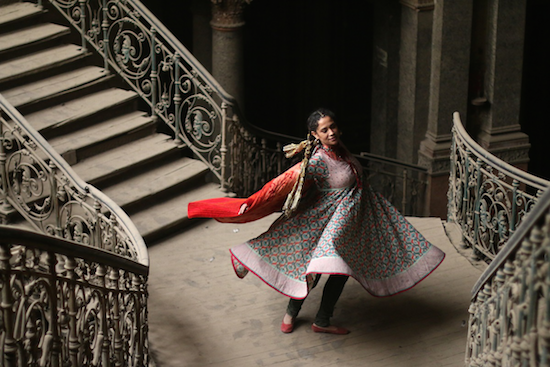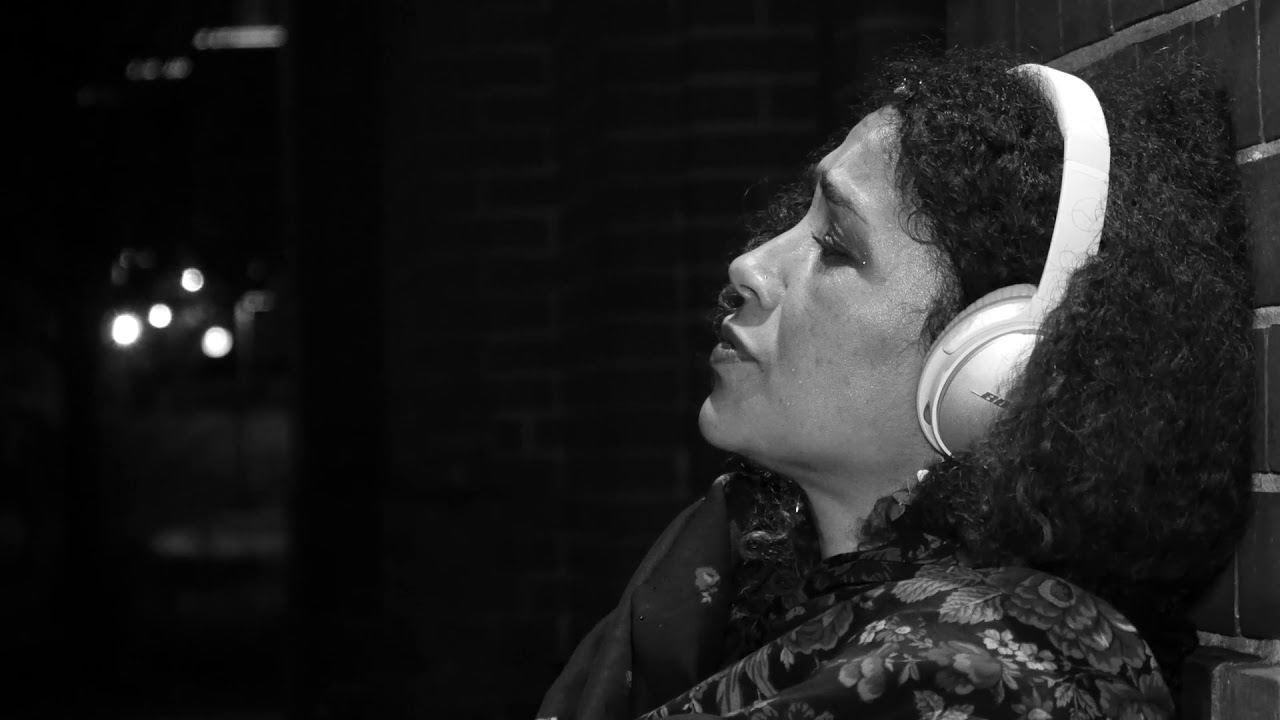Ahead of this November’s Le Guess Who? festival in Utrecht, we are presenting a series of previews centred around the coinciding Mega Record & CD Fair, and artists playing at the festival.
Last week, Vanishing Twin talked us through their favourite Library Music, as well as albums by Ariel Pink, John Coltrane and more, ahead of their appearance at this year’s Le Guess Who?, which will follow the release next month of new album Ookii Gekkou. This week, Tunisian-born, Belgian-based singer Ghalia Benali joins us to pick out some of her favourite jazz records, and tell us which Oum Kalthoum record she couldn’t do without.
Le Guess Who? will this year welcome the likes of William Basinski, faUSt, Pa Salieu, Angel Bat Dawid, Space Afrika, Lyra Pramuk, Jesu, Alabaster dePlume, L’Rain and Duma, as well as guest curation from Midori Takada, John Dwyer, Phil Elverum, Matana Roberts and Lucrecia Dalt. The Mega Record & CD Fair will run alongside it in Utrecht. You can find more information about the fair here.
Le Guess Who? will take place from November 11 to 14, 2021. Find more information <a href="https://www.leguesswho.nl/" target=“out">here.
Which three records would you be on the hunt for at the Mega Record & CD Fair?
Ghalia Benali: Europe’s biggest record fair would be a beautiful opportunity to ‘meet’ the latest records by Mik Mäâk (Belgian contemporary jazz), Tamino (alternative / indie) and Philip Catherine (jazz), as well as an opportunity to discover many others.
When / how did you get to know these records, and why are they special to you?
GB: I’m not a music or records hunter. Music of any kind and I are like lovers who run into each other randomly with no expectations. I realised that my taste would go for Arabic contemporary and classical music; Indian old and ethnic; Western contemporary , alternative and baroque; musique ancienne; and jazz.
The artists I named represent that harmony of all these styles; rooted in tradition, masters of improvisation, improving story-telling through the universal language of music, and creating a bond between original and contemporary. As I said, music and I are in ‘love’, and love is the need to be continuously inspired, and create.
What album have you listened to the most over the last year?
GB: I’ve mainly listened to Tous Les Matins Du Monde by Jordi Savall, as well as Call To Prayer by myself and Romina Lischka.
I don’t usually listen to records I’m involved in after they are released, unless I’m on my way to one of my concerts related to those records and I need to refresh my memory. I’ve been listening to Call To Prayer more than any other, because I discovered many layers that I wasn’t aware of when I ‘reacted’ to Marin Marais’ compositions. It was kind of a study of what happened, in order to understand better how my feelings get inspired by ‘things’, and which ‘things’ in general could inspire me.
I don’t read music and I work a lot with records while improvising, then I fix melodies and learn them. My way of creating music is quite challenging as it depends on the inspiration of the moment, how much I can be ‘present’, how much I can feel that connection with the poem, or, for instance, with Call To Prayer, the connection I can establish with the baroque and musique ancienne that is quite new to me as it’s not the type of music I grew up with. I don’t think twice; usually the first impression brings me to the right composition of my songs. I believe we listen to music because it is the true friend who talks to our soul. Music is the voice of my lover.
If you were only allowed to keep one record by Oum Kalthoum, which one would it be?
GB: It’s difficult to choose. I’d have kept Al Atlal, composed by Al Sunbaty, because it’s related to my childhood, as I was listening to it since I was four years old, singing it by heart, studying each word of the classical Arabic collection of poems written by Ibrahim Nagy. It was definitely my first school of music.
But today, I’d definitely choose Rubaiyat Al Khayam, which is also composed by Al Sunbaty. I’m more overwhelmed by the amazing words of Ahmed Ramy, adapted from the famous quatrains of Omar Khayam. For the child I was, Oum Kalthoum was the voice of God, as we couldn’t tell if she was a woman or a man. Her voice was touching the soul, not only the ears, and not only Arab speaking audiences. So, for me, the combination of her voice and the Sufi words of Al Khayam is not only a call to prayer but a prayer itself.



